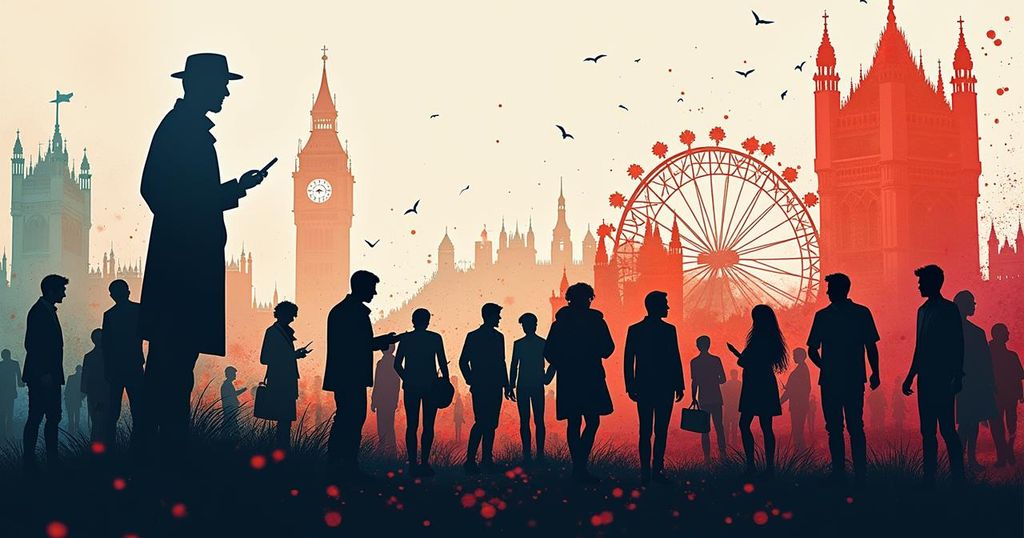Mozambique will hold a presidential election on Wednesday, potentially extending the ruling Frelimo party’s power for another term. Daniel Chapo is the ruling party’s candidate, facing independent contender Venancio Mondlane. The election will also include parliamentary and provincial governor votes, amid ongoing scrutiny of electoral integrity due to past accusations against Frelimo. Both candidates pledge to address the ongoing jihadist insurgency impacting Cabo Delgado province and the overall stability of the nation.
Mozambique is scheduled to vote in a presidential election on Wednesday, which may result in the ruling party extending its lengthy 49-year reign since gaining independence from Portugal in 1975. The ruling Front for the Liberation of Mozambique (Frelimo) has nominated Daniel Chapo, 47, to succeed President Filipe Nyusi, who has served the maximum of two terms. Analysts suggest that the most significant opposition to Chapo’s candidacy is likely to come from independent candidate Venancio Mondlane, aged 50. In addition to the presidential vote, citizens will select their parliamentary representatives and provincial governors in this nation of approximately 33 million people. The country has experienced a tumultuous history marked by a 15-year civil war which concluded in 1992, and it is currently grappling with a violent jihadist insurgency in the northern Cabo Delgado province. Both leading candidates are committed to resolving this crisis and restoring tranquility to the region, where over 1.3 million individuals have been displaced due to insurgency-related conflicts. The electoral process will commence with the closing of polling stations, promptly followed by vote counting. While preliminary results are anticipated shortly after the polls close, official results must be submitted to the Constitutional Council within a 15-day period for validation. Concerns regarding the integrity of the election persist, particularly as the Frelimo party has faced accusations of election fraud in the past, including allegations of voter manipulation during last year’s local elections where it claimed victory in 64 of 65 municipalities. These accusations have been vehemently denied by Frelimo, and a plethora of regional and international observers, including teams from the European Union, are present to monitor the electoral process. Following its independence, Frelimo promoted a one-party state and engaged in a prolonged civil conflict against the Mozambique National Resistance (Renamo). The first democratic elections occurred in 1994, following a peace agreement. Renamo remains an active political entity, with party leader Ossufo Momade contesting the presidency, despite a decline in its popularity and continuing tensions with Frelimo. Mondlane, an independent candidate who previously aligned with Renamo, aims to represent young voters dissatisfied with pervasive poverty and unemployment in the country. While Mozambique boasts a beautiful coastline along the Indian Ocean, it has faced severe challenges from natural disasters such as cyclones and drought in recent years. The country also experienced a significant financial scandal in 2016 when it was revealed that officials had embezzled over $2 billion in undisclosed foreign loans, exacerbating the economic crisis. Mondlane’s support structure comprises a new political organization, Podemos, which stands for “we can” in Portuguese, after the prior opposition coalition was barred from participating in the elections, prompting accusations of Frelimo’s electoral manipulation. Although Mondlane presents a fresh option for voters, most analysts project that Frelimo will maintain its authority, having achieved over 70% of the vote in the previous national election five years ago. The Pangea risk consultancy firm described Chapo’s path to candidacy as “carefully stage managed” by the ruling party, noting his background as a media figure and law professor prior to assuming the governorship of Inhambane province—Mozambique’s main tourism area. If successful, Chapo would become the first president born after the country attained independence.
The upcoming presidential election in Mozambique marks a significant moment in the nation’s political history, as the ruling party, Frelimo, seeks to extend its dominance that has lasted nearly half a century since independence from Portugal. With a backdrop of ongoing challenges including economic crises, social unrest, and insurgency threats, the election poses crucial questions about governance, stability, and democratic processes in Mozambique. Most notably, the political landscape features the challenges from independent candidates like Venancio Mondlane, against a backdrop of past allegations of electoral misconduct against the ruling party.
In conclusion, the Mozambican presidential election represents a critical juncture for the country as it faces numerous challenges from economic instability to social strife. The Frelimo party’s potential continuation in power raises concerns over democratic processes and election integrity. With fresh challenges presented by independent candidate Venancio Mondlane, the coming election will test the political resilience and aspirations of the Mozambican electorate.
Original Source: apnews.com






